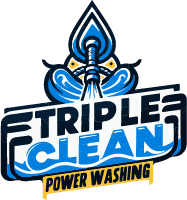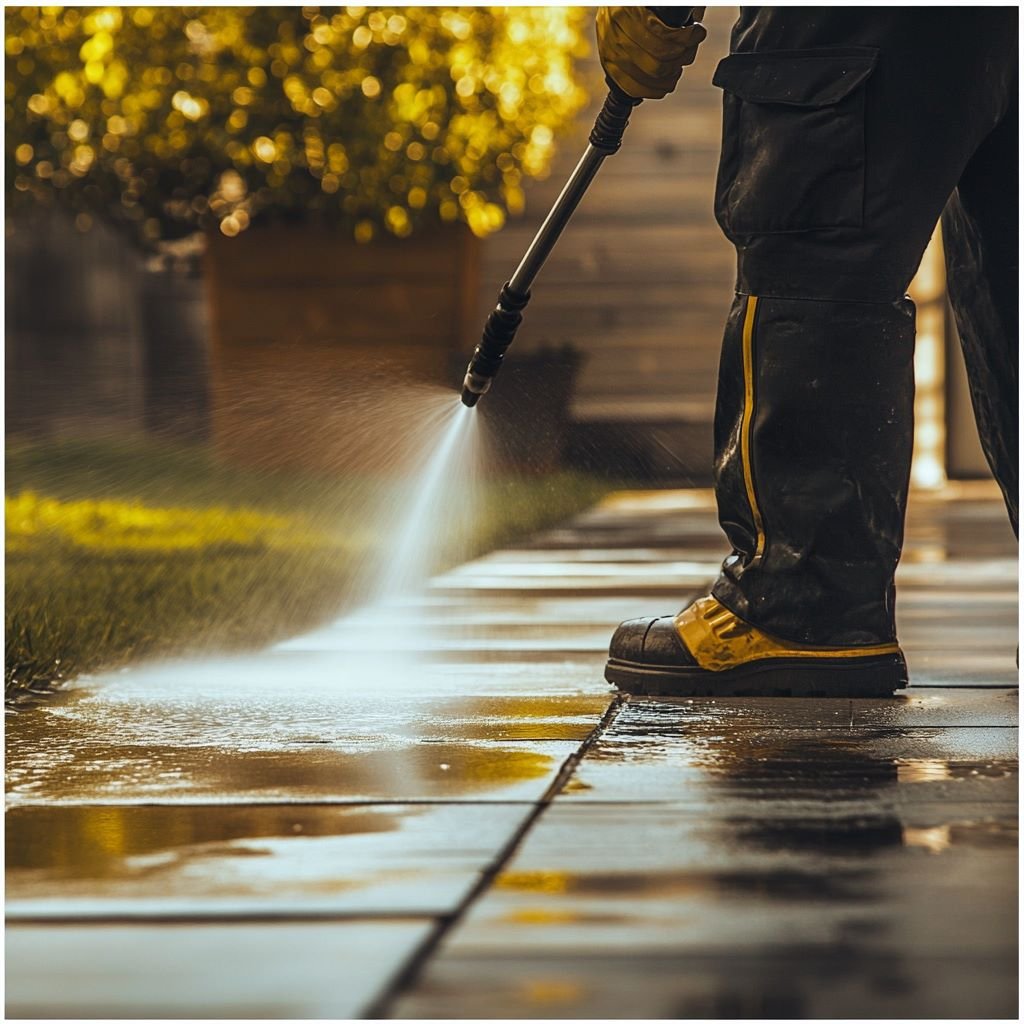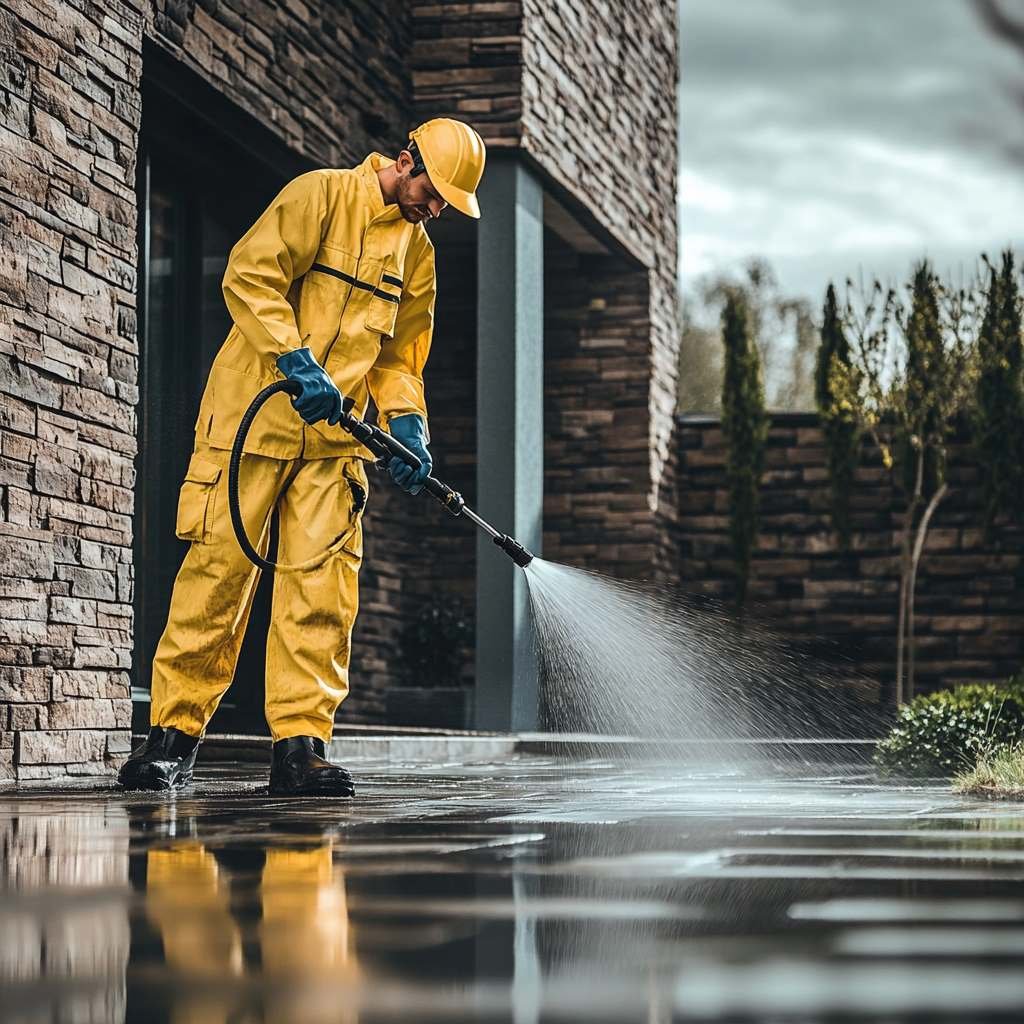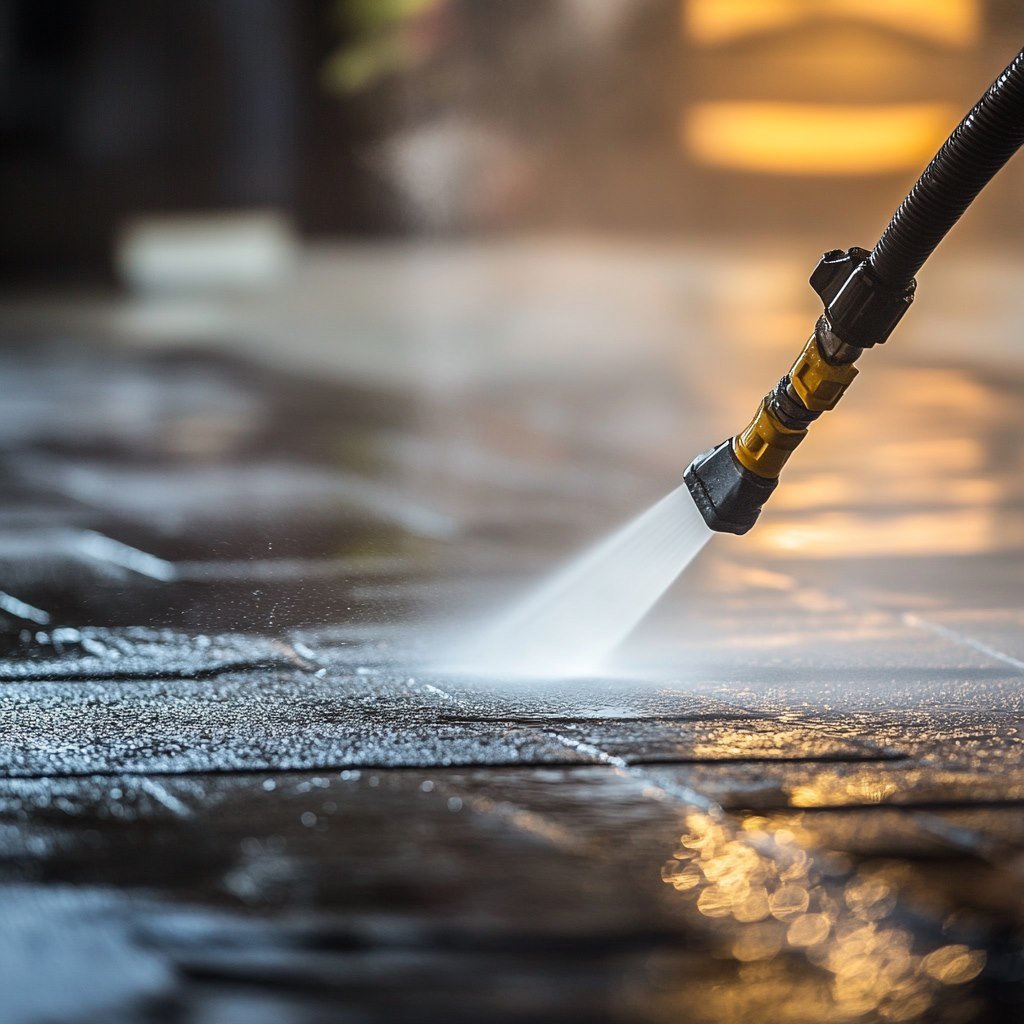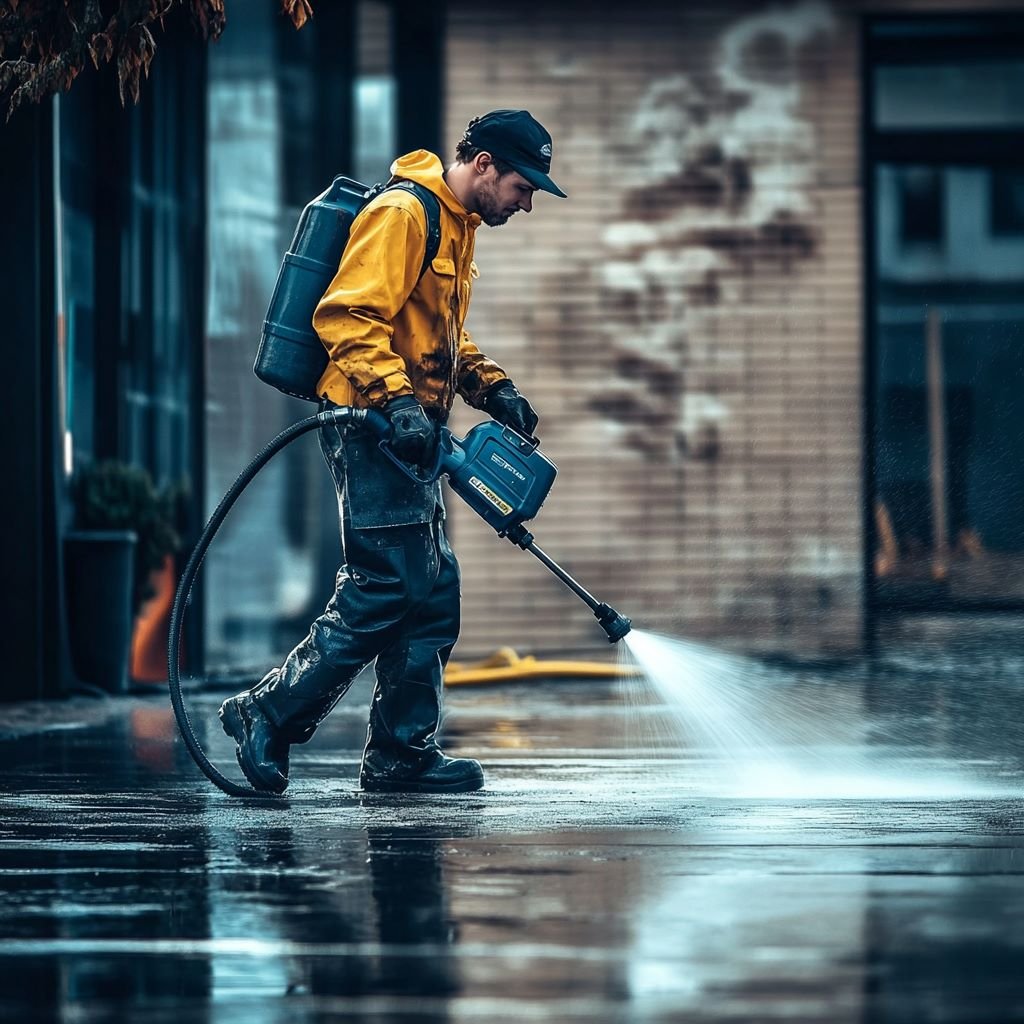Pressure washing your pool area is an important step in preparing for a scorching hot summer, in Snohomish County, Washington. A clean and inviting pool area can make all the difference when entertaining guests or simply relaxing with family.
When it comes to keeping your pool and its surroundings immaculate, Triple Clean Power Washing offers an effective solution.
Key Takeaways
- Pressure washing is essential to prepare your pool area for summer activities.
- Focus on cleaning the pool deck, patio, and outdoor furniture for the best results.
- Professional services like Triple Clean Power Washing in Snohomish County offer expertise and efficiency.
Why Pressure Washing Is Essential for Pool Areas
Pressure washing your pool area helps keep it clean, safe, and visually appealing. It tackles algae, mold, and mildew, prevents accidents on slippery surfaces, and enhances the overall look.
Removing Algae, Mold, and Mildew
Algae, mold, and mildew thrive in damp environments. Pool areas are often moist, providing the perfect conditions for these to grow. Pressure washing effectively removes these harmful elements.
When algae and mold are left untreated, they can spread quickly.
Pressure washing is ideal when it comes to maintaining a healthy pool area.
Preventing Slippery Surfaces and Accidents
Wet pool decks can become slippery, which increases the risk of falls and injuries. Dirt, debris, and algae build up on these surfaces, making them even more hazardous.
Using a pressure washer reduces the risk of accidents by removing this buildup. Keeping the pool deck dry afterward helps too.
Enhancing the Aesthetic Appeal of the Pool Area
A clean pool area looks inviting and well-maintained. Dirt, stains, and discolorations can make the space feel neglected. Regular pressure washing restores the original look of your pool deck, tiles, and surrounding surfaces.
A clean pool area also improves the overall ambiance. By maintaining the aesthetic appeal, you also protect your investment in the property.
Triple Clean Power Washing guarantees thorough cleaning while protecting the surfaces of your pool area, leaving a lasting impression on your pool guests.
Key Areas to Pressure Wash Around the Pool
Pressure washing the pool area can freshen up your outdoor space and create a safer environment. Here are some specific zones that need attention to ensure the best results.
Pool Deck
The pool deck is one of the most important areas to pressure wash.
Use low to moderate pressure to avoid damaging the material. Sweep the debris away first to make the process easier.
For best results, aim to pressure wash the pool deck at least once a season.
Surrounding Patio and Pathways
Pathways and patio areas around the pool can also accumulate dirt and mold.
Use lower pressure settings to clean these areas thoroughly without causing any damage to the surfaces. Pay close attention to the edges where dirt tends to collect.
Clean these areas well to ensure a uniform appearance and prevent slippery spots that could pose a hazard.
Pool Furniture and Fixtures
Pool furniture and fixtures like railings and ladders are prone to collecting dirt and grime.
Move all items to a safe area where you can pressure wash each piece without worrying about drips affecting the pool.
Use a mild detergent for a deeper clean, especially for plastic or metal surfaces. Rinse thoroughly to avoid soap scum.
Fences and Gates
Keeping fences and gates clean is important for maintaining the overall look of your pool area.
Concentrate on corners and areas where dirt and cobwebs are likely to gather.
Regularly cleaning these structures helps maintain a polished look and can even improve the lifespan of these materials.
Best Practices for Pressure Washing Your Pool Area
Preparing your pool area for summer with a pressure washer should be done carefully to avoid damage and grants safety. Using safe cleaning solutions, and proper techniques are important steps in this process.
Choosing the Right Pressure Washer and Settings
When pressure washing your pool area, it’s vital to choose the correct pressure washer and settings.
A pressure washer with 2000 to 3000 psi is usually adequate for pool surrounds. Avoid high-pressure settings, as they can damage the pool’s surface and grout.
Adjust the nozzle to a wider spray to spread the pressure more evenly.
Keep the nozzle at least 12-16 inches away from the surface to prevent etching or chipping.
Using Eco-Friendly and Safe Cleaning Solutions
Using eco-friendly cleaning solutions is important to protect both your pool and the environment.
A mild detergent or an algaecide can help to remove stains and algae without harmful chemicals.
Avoid running bleach through your pressure washer as it can damage the machine and is harsh on surfaces.
Proper Techniques to Avoid Damage to Surfaces
Proper techniques are essential to keeping your pool area in top shape. Start by sweeping the area to remove debris. Begin with a low-pressure setting and gradually increase as needed.
Always keep the pressure washer moving to avoid concentrating the force on one spot, which can damage the surface.
Use a gentle scrubbing brush for stubborn stains before applying high-pressure water. After washing, allow the area to dry completely to prevent slip and fall accidents.
Professional vs. DIY Pressure Washing
Deciding between professional and DIY pressure washing involves weighing factors like cost, safety, expertise, and time. Each option has unique benefits and drawbacks that can help guide your decision.
Pros and Cons of Hiring a Professional Service
Pros:
Professionals bring experience and skill, ensuring top-notch results for your pool area. They know the right pressure settings and techniques to remove all algae, dirt, and stains without damaging surfaces.
When you hire a service like Triple Clean Power Washing, you get a high level of expertise and equipment, which leads to thorough cleaning. This is often important for maintaining the integrity of your pool area.
Cons:
The main downside is the cost. Professional services are generally more expensive than doing it yourself. You’ll have to pay for labor.
Cost Considerations and Time Investment
DIY:
Upfront costs for DIY pressure washing include renting or buying equipment, which ranges from $100 to $400. If you already own a pressure washer, this option becomes more budget-friendly.
DIY projects allow you to work on your schedule, but will also become your schedule.
Professional:
The cost for professional services from companies like Triple Clean Power Washing can be higher, depending on the size of your pool area and the level of dirt.
Professionals save you time by handling everything. You don’t need to worry about setup, cleaning methods, or equipment maintenance.
Ensuring Thorough and Safe Cleaning with Experts
Professional pressure washers, like those from Triple Clean Power Washing, come equipped with commercial-grade machines that offer more cleaning power than consumer-grade models.
Professionals can identify and treat specific issues, like mold or mildew, which you might miss in a DIY effort.
They also use environmentally friendly cleaning agents that are safe for your pool and surrounding plants.
Additional Pool Area Maintenance Tips
Consistent skimming and vacuuming, checking chemical balances, and make sure pool equipment is in top condition are all important steps.
A little light cleaning, sometimes, makes the cleaning easier overall.
Regular Skimming and Vacuuming of the Pool
Frequent skimming helps remove debris like leaves, bugs, and dirt from the pool surface.
Consider skimming your pool daily, especially during the summer when more foliage can fall into the water.
Using a pool vacuum weekly is also necessary for maintaining cleanliness. Manual or automatic pool vacuums reach areas that skimming can’t. Focus on the bottom and hard-to-reach corners.
Checking and Balancing Chemical Levels
Maintaining the chemical balance in your pool is crucial for safe swimming conditions.
Adjust chemicals as needed. For instance, if the pH is too high, add a pH reducer. If chlorine is low, add chlorine tablets or liquid chlorine.
Balanced chemicals help prevent algae growth, keep the water clear, and protect swimmers from harmful bacteria.
Inspecting and Maintaining Pool Equipment
Regular equipment checks are vital to ensure everything runs smoothly. Start by inspecting the pool pump and filter. Clean the filter and check for any blockages.
Examine other equipment such as the pool heater, skimmer baskets, and ladder for signs of wear or damage. Lubricate moving parts and replace any broken components.
A company like Triple Clean Power Washing can provide an annual professional inspection.
